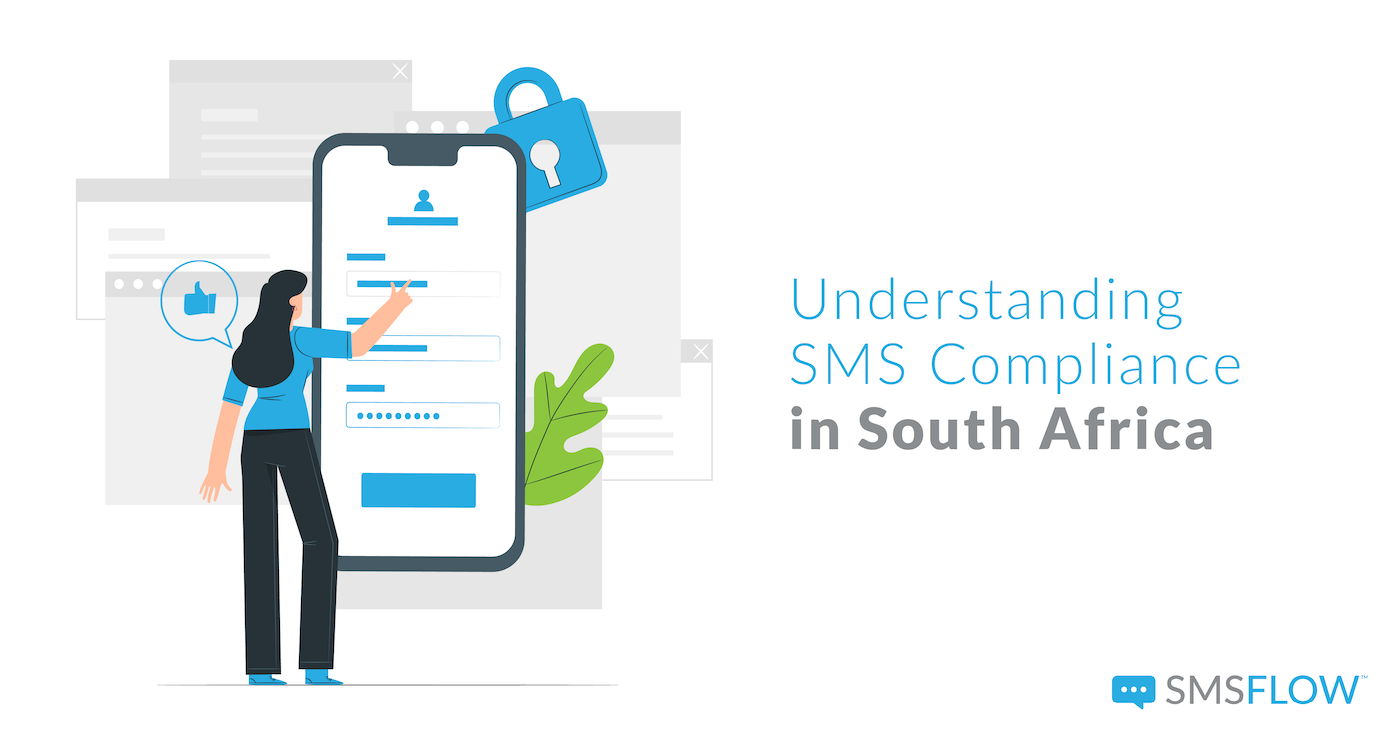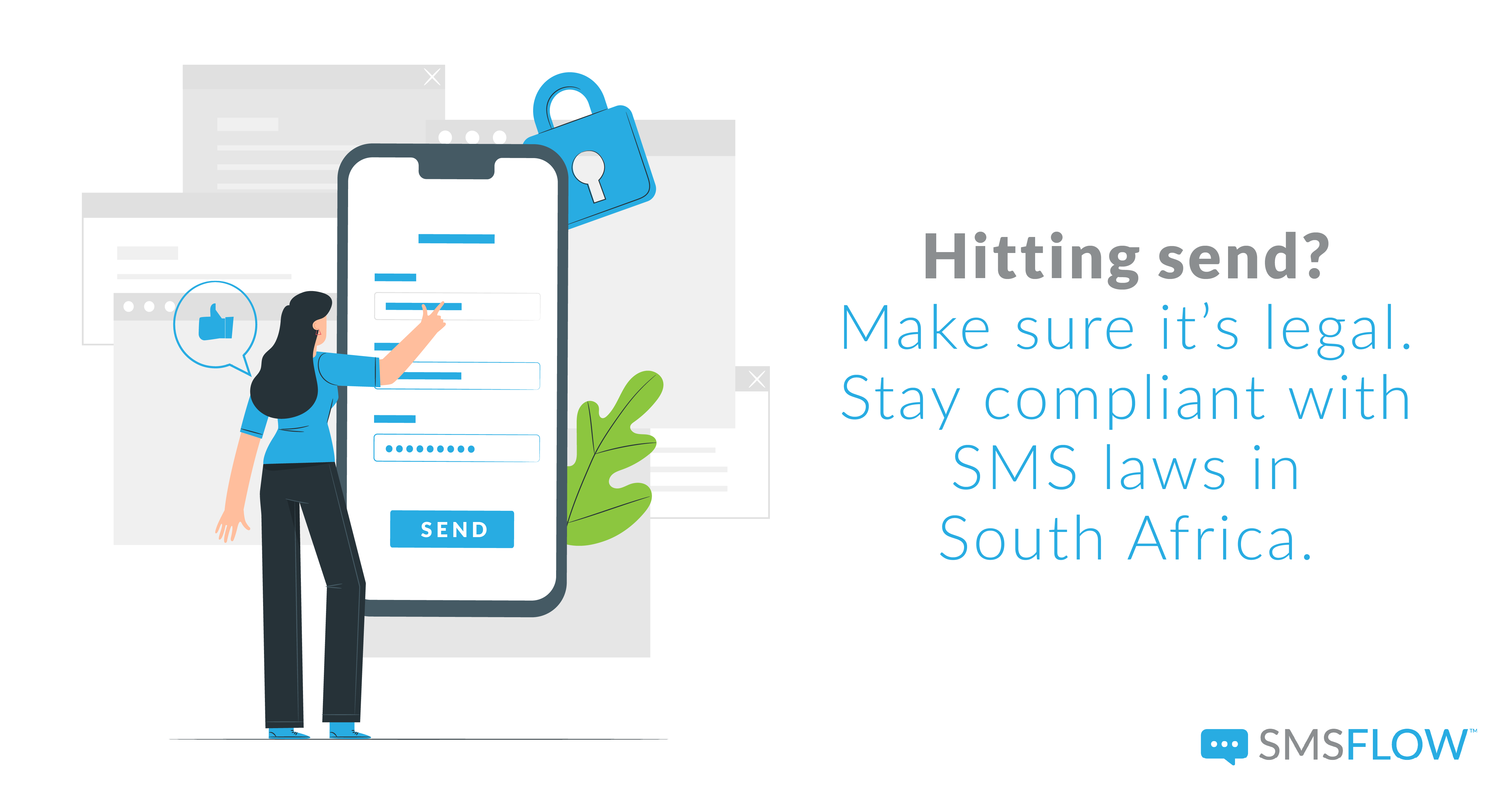Understanding SMS Compliance in South Africa

SMS compliance in South Africa is a vital part of earning customer trust and protecting your business. As more companies embrace mobile messaging, navigating SMS compliance in South Africa becomes essential for ethical and effective communication. Whether you’re sending promotions, alerts, or transactional updates, understanding SMS compliance in South Africa helps you stay on the right side of the law while safeguarding your brand reputation.
With strict regulations in place, every message you send should reflect your commitment to SMS compliance in South Africa.
In this guide, we’ll unpack everything you need to know about maintaining SMS compliance in South Africa so your business can grow with confidence.
1. The Protection of Personal Information Act (POPIA)
The POPIA is a cornerstone of personal data protection and a key part of SMS compliance in South Africa. Under this act, businesses must handle personal information responsibly and only process it with the informed, specific, and voluntary consent of the data subject.
Key compliance areas related to SMS compliance in South Africa:
- Consent: You must obtain explicit opt-in consent before sending marketing SMS messages. Passive consent (e.g. pre-checked boxes or implied consent) is not acceptable.
- Purpose limitation: Clearly state why the data is being collected and how it will be used.
- Data subject ights: Provide consumers with access to and the ability to correct or delete their personal information.
2. WASPA code of conduct (v21+)
To maintain SMS compliance in South Africa, it is essential to follow the Wireless Application Service Providers’ Association (WASPA) Code of Conduct. This industry-led code outlines operational guidelines for businesses using SMS marketing.
To meet SMS compliance in South Africa, pay close attention to:
- Sender identification: Every SMS must clearly identify the sender.
- Opt-out instructions: A valid, working opt-out mechanism must be included in every marketing message.
- Time of sending: Marketing SMS messages must be sent during the allowed hours only.
- Consent proof: Keep records of consent for at least three years.
3. Do not contact registry
A critical component of SMS compliance in South Africa is checking your marketing list against the National Opt-Out Register. Managed by the DMASA, this register protects consumers from unsolicited communications.
Failure to consider this step in your SMS compliance in the South Africa process could result in penalties or enforcement action from the Information Regulator.
4. Rights of recipients
Respecting data subject rights is fundamental to SMS compliance in South Africa. Consumers have the right to control how their personal information is used, especially in marketing contexts.
To ensure SMS compliance in South Africa, businesses must allow users to:
- Access and correct their personal data
- Withdraw consent at any time
- Lodge complaints if they feel their rights are being violated
5. Clear opt-out options
Offering a clear and accessible way to unsubscribe is a non-negotiable part of SMS compliance in South Africa. Without this, your business risks breaching both POPIA and WASPA rules.
SMS compliance in South Africa requires businesses to include the following:
- “Reply STOP to unsubscribe” instructions
- Immediate opt-out via shortcode
- Free USSD-based opt-out alternatives
6. Avoiding spam and gray areas
To remain aligned with SMS compliance in South Africa, avoid sending messages to contacts without direct and explicit consent. Purchased lists or cold outreach without consent are strictly prohibited.
Maintaining SMS compliance in South Africa also means avoiding messages to inactive or disengaged contacts, as these could be classified as spam under WASPA guidelines.
7. Documentation and audit trail
An important pillar of SMS compliance in South Africa is the ability to produce evidence of consent and communication history. Maintaining a thorough audit trail can safeguard your organisation during any legal or regulatory scrutiny.
To align with SMS compliance in South Africa, businesses should maintain:
- Consent logs
- Records of all messages sent
- Proof of opt-out actions
- Internal compliance training records
8. Stay informed and adaptable
Staying informed about regulatory changes is key to ongoing SMS compliance in South Africa. The Information Regulator and WASPA regularly update their guidance, making it essential for businesses to keep learning.
Ongoing education and review are necessary to remain in line with SMS compliance in South Africa requirements, particularly as enforcement becomes stricter.
Conclusion
Understanding SMS compliance in South Africa is essential for any business looking to use SMS marketing responsibly. By following these principles, you ensure your campaigns are ethical, lawful, and customer focused.
If you’re ready to take your campaigns to the next level with full SMS compliance in South Africa, our BulkSMS platform has the tools you need. From opt-in management to compliance logs, we’re here to help you send smart, safe, and successful messages.
Recent Posts

Cheapest SMS API in South Africa: Reliable, fast, affordable

Case Studies: Success Stories of Businesses Using Bulk SMS

How to create effective SMS campaigns

Why more South African SMEs are switching to SMSFlow for affordable, reliable business messaging

How does SMSFLOW’s pricing compare to other bulk SMS platforms in South Africa?

What do you need to know about SMS compliance in South Africa?

Future of SMS Marketing: What Businesses Should Prepare For

Integrating SMS with Other Marketing Strategies

How to Measure the Success of Your SMS Campaigns


